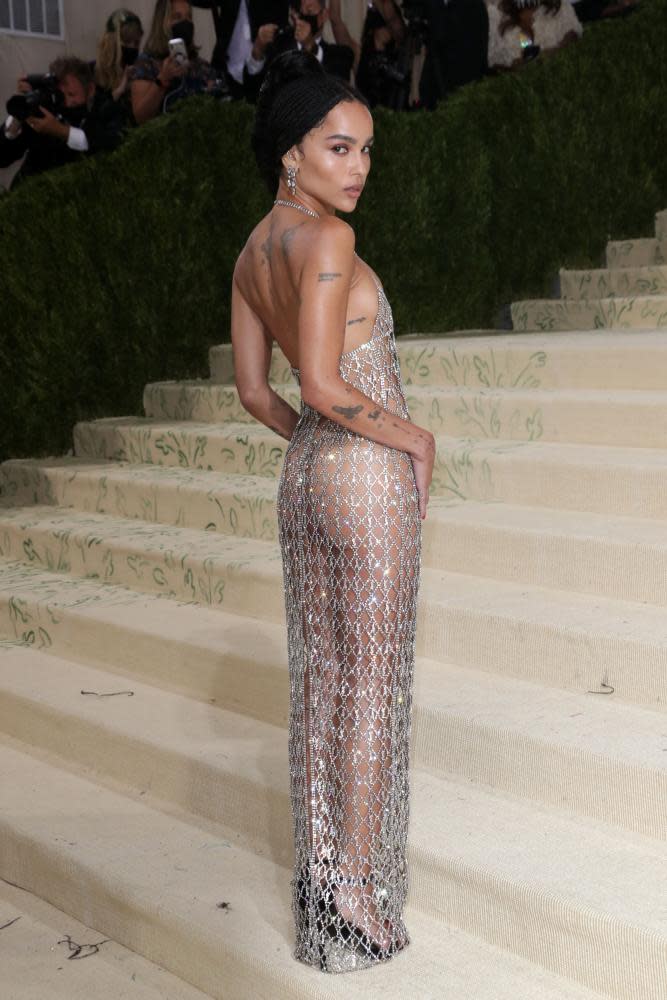Bootylicious? What the return of derriere fashion means

The idea of what’s “sexy” has been going through something of a metamorphosis in fashion of late. Since the pandemic shuttered any semblance of flesh-bearing and instead saw virtually everyone opt for chunky, tie-dye jogging bottoms, there has been an effort to bring sexy back. The widely predicted “vaxxed and waxed” Hot Girl Summer was delayed, but recently, we’ve seen a heap of celebrities baring more than usual, whether in bodysuits or in Love Island-inspired “pin tops”.

The bottom is the most-recent unexpected anatomical feature to be getting an airing. From Lil Nas X on Instagram to Rihanna on the cover of Dazed magazine, the derriere is getting more and more attention. Whether that comes in the form of revealing pants (like Dua Lipa’s thong dress), lingerie (Megan Fox and Khloé Kardashian posing in their Skims on Instagram) or high fashion trousers that direct attention to the wearer’s behind (like Fiorucci’s “angel patch” jeans).
So, have we hit rock bottom or is it something else?
.@MeganFox & @KourtneyKardash for SKIMS. Cotton has never looked this good.
Shop the look: https://t.co/ckaAbaHN2S pic.twitter.com/dfApqc2UQB— SKIMS (@skims) September 22, 2021
Part of an overarching trend of 00s revivalism which includes corsets, high platform heels and low-rise jeans, it’s one with a layer of cultural appropriation. That decade saw women like Miley Cyrus and Kim Kardashian adopting twerking and grabbing the culture of bigger bottoms. As the writer Crystal Martin wrote in the Cut: “It’s an exploitation of Black women as old as the history of Black people in America.” Indeed, at the Met Gala: where the theme was American independence, derrieres again went into the spotlight. Zoë Kravitz wore a see-through Saint Laurent number, Empire’s Taraji P Henson was in a Moschino jumpsuit with a revealing low cut back and the singer Teyana Taylor wore a silver Prabal Gurung outfit with a “crack cleavage”.
Significantly, this time, it was the black women who were doing the derriere baring, taking back the backside, as it were. Like the various black hairstyles on display, this was a sartorial statement of intent and important reframing.

